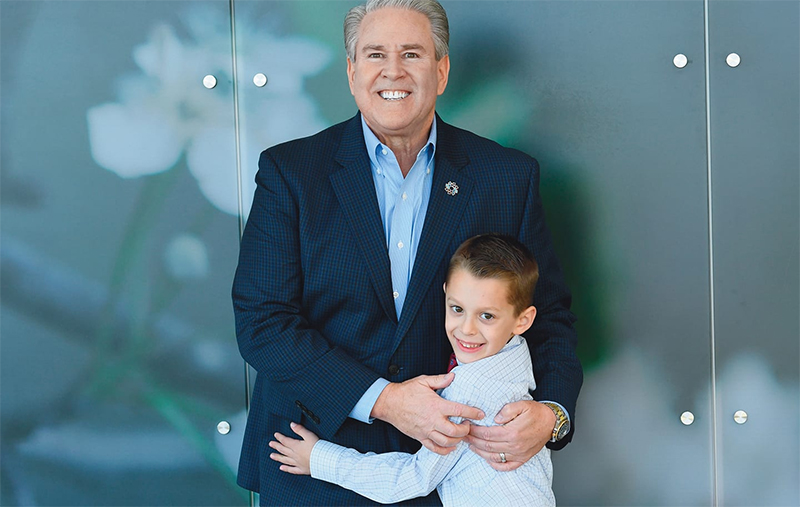Understanding Hospice Care

December 13, 2018
When you hear hospice, the first thought, and often the only thought, is this: You are surrendering to cancer or heart disease or any other fatal illness. But there’s an important element called palliative care which focuses on quality of life. While often essential to end-of-life treatment, palliative care is not limited to a particular time frame or a singular setting. Regardless of the setting, the goal is to help patients get the most out of living.
“To be honest, when they first told me hospice was my option, I didn’t know what to think,” says Mike Budd of Lawrenceville. “All I could think was, hospice? People are dying.”
Mike Budd has battled Gastrointestinal Cancer for almost three years. Since March 2018, Mike has been learning to navigate his life through hospice, where he receives palliative care.
“They make you comfortable and they know what type of medicine to give you and how it will make you feel better,” Mike describes his Hackensack Meridian Health care team, singling out one caregiver in particular, Allison Weitz, “I can talk to Allison about anything and everything. I feel like I have a sister.”
Palliative care is appropriate at any age and at any state of illness. When appropriate, patients may continue curative treatment, such as chemotherapy. The goal is to relieve symptoms and stress and improve quality of life. For Mike, this meant being present for a family milestone.
“I have a grandson who turned a year old and it was his birthday. They wanted to go to the pumpkin patch and I was scared that I wouldn’t be able to make that trip,” Mike describes how his team helped to ensure that he was able to be part of this day. “They gave me advice as to what to do the day before and gave me the right medication so I could enjoy that day.”
This specialized care, delivered by dedicated and compassionate professionals, encompasses the entire person’s physical, emotional and spiritual well-being, not just illness. No matter the setting, the palliative care team works collaboratively with patients and their families to develop care plans that are specific to the individual needs of each person.
When is palliative care appropriate? The answer is simple: When it’s needed. The approach is both pragmatic and personal: Cure whenever possible, treat often, and comfort always.
If you would like to learn more about hospice and palliative care, please call Haven Hospice at 732-321-7769 or visit our palliative care page.

Care Across Generations
A longtime board member of the Jersey Shore University Medical Center Foundation, John Reinhardt liked to think of himself as a “secret shopper”

A Nurse’s Fight to End Drug Addiction
Ken Rodenbaugh, RN, CARN, CEN, a nurse in the Southern Ocean Medical Center Emergency Department, speaks from experience